Moscow Appeal – The case for Leyla Yunus
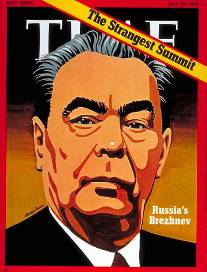 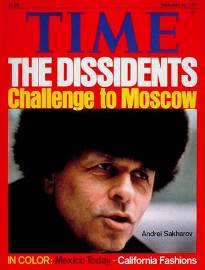 |
|
|
Then: Brezhnev versus Sakharov |
|
"I feel that I owe a debt too great to be repaid to the brave and good people who are incarcerated in prisons, camps, and psychiatric hospitals because they struggled to defend human rights…
Andrei Sakharov
- Four musketeers and a letter
- Forward to the past? 1970s dissent and the return of shame
- Mobilisation, finally?
Dear friends,
This week four legendary figures in the Russian human rights movement – friends and followers of Andrei Sakharov – wrote a joint appeal to members of the European Parliament. In their appeal, they call on European parliamentarians to react to the blatant suppression of human rights that is occurring in today's post-Soviet world.
Drawing on decades of experience, these human rights defenders are sounding an alarm bell. Will it be a wake-up call for European institutions?
Four musketeers and a letter
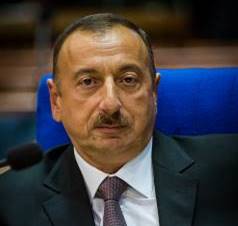  |
|
|
Now: Aliyev versus Yunus |
|
Lyudmila Alekseeva, born in 1927, is the doyenne of Russian human rights activists. She was present at the very first human rights demonstration in Soviet Moscow ever, on Pushkin Square in December 1965. This was during the very beginning of the Brezhnev era, which saw thousands of dissidents imprisoned. Alekseeva was later among eleven human rights stalwarts who formed the Moscow Helsinki Group in 1976. She has continued to defend human rights in Russia ever since as a member of this group.
Sergei Kovalev, born in 1930, set up the first Initiative Group for the Defence of Human Rights already in 1969 in Moscow. He was sentenced in 1975 to seven years in prison in Siberia, followed by three years in exile. His crime: drawing attention to the arbitrary suppression of the freedom of others in the first human rights bulletin in the Soviet Union. In 1991 he became the first Russian Human Rights Commissioner, until he was dismissed due to his criticism of state policy in Chechnya in 1995. He was one of the founders of Russian Memorial. Memorial, one of the most courageous human rights groups in Europe, has fostered debate on political repression, helped political prisoners and documented human rights violations across the former Soviet Union.
Svetlana Gannushkina, born in 1942, has defended the rights of refugees, displaced people and migrants since the beginning of the Karabakh conflict in 1988. One of Russia's most respected human rights activists, she has helped hundreds of Azeri and Armenian prisoners return home. In 1990 she co-founded the Civic Assistance Committee, and in 1996 established the Migration Rights Network, both of which have provided assistance to refugees and migrants in Russia and neighbouring countries. Together with Sergei Kovalev, she co-founded and is a board member of the Memorial Human Rights Centre.
Oleg Orlov, born in 1953, became active in the dissidents' movement in Russia in the 1980s, printing leaflets about the war in Afghanistan and supporting the Solidarnosc movement in Poland. In 1988, he was one of the initiators of Memorial. Since the 1990s, he has worked in many conflict areas, from Karabakh to Chechnya, publicising abuses and negotiating the exchange of prisoners. Orlov has clashed several times with the Russian authorities in recent years, standing up for human rights and fair investigations of apparently politically motivated murders.
In 2009 Oleg Orlov, Sergei Kovalev and Ludmila Alekseeva received the European Parliament's Sakharov Prize for Human Rights on behalf of Memorial, and on behalf of all other Russian human rights defenders.
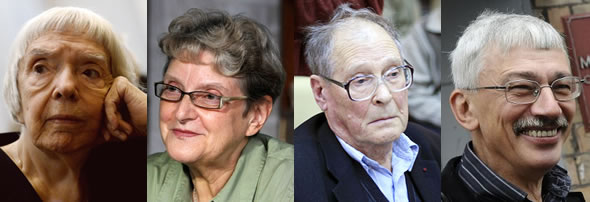 |
|
|
Lyudmila Alekseeva – Svetlana Gannushkina – Sergei Kovalev – Oleg Orlov |
|
This week in a joint letter (available in English and Russian), these four human rights defenders draw attention to an unbearable situation: the systematic repression of civil society and human rights defenders in Azerbaijan. In their appeal, Alekseeva, Gannushkina, Kovalev and Orlov propose a reaction from the European Parliament: to honour Leyla Yunus, who has withstood autocratic pressure for decades, by giving her the 2014 Sakharov Prize:
"As members of the last generation of dissidents in the Soviet Union and followers of Andrei Sakharov, we wish to support our colleagues in Azerbaijan who are unfortunately suffering for the brave stand they are taking to defend human rights in their country. By receiving the award, Leyla would also be a worthy successor to Memorial which was awarded the prize in 2009."
They note that Leyla Yunus has long worked for reconciliation, at times when few others dared:
"In January 1992 Leyla Yunus was the coordinator on the Azerbaijani side of the first meeting of Armenian and Azerbaijani intelligentsia during the Nagorno-Karabakh conflict. At this intense phase of the Karabakh conflict this meeting had great historical significance. It is enough to say that the best known and most talented writers of the Caucasus, Hrant Matevosian and Akram Ailisli, took part in the meeting.
In recent times Akram Ailisli has been persecuted by the Azerbaijani authorities for publishing his novel Stone Dreams in which he described the tragic events of January 1990 and life in his home town of Ailis, where Armenians and Azerbaijanis lived together peacefully. Leyla and Arif Yunus were amongst the very few who decided to speak out in defense of the writer. This Armenian-Azerbaijani peace-building work is now being described as state treason."
They draw attention to the risk Leyla ran doing so:
"On July 30, Leyla Yunus was arrested. Arif Yunus was arrested a few days later. They were accused of serious crimes, including state treason, embezzling large sums, illegal commercial activity, refusal to pay taxes and falsifying documents. If convicted, they could both face sentences from 15 years to life imprisonment. All court proceedings are carried out in a highly secretive fashion which is closed even to family members."
The letter concludes:
"Esteemed members of the European Parliament! Leyla Yunus, as well as her husband Arif, has worked for many years to defend human rights, develop democracy and protect ethnic minorities from discrimination. She would be a most worthy recipient of the European Parliament's Sakharov Prize for Freedom of Thought. Awarding her the prize would also help protect her, Arif and the other 96 recorded political prisoners in Azerbaijan from further persecution and draw attention to the disgraceful human rights situation in a country that is a member of the Council of Europe. The award could make a positive impact on the overall situation in Azerbaijan before it becomes too late for many people."
Respectfully,
Lyudmila Alekseeva
Svetlana Gannushkina
Sergei Kovalyov
Oleg Orlov
The full letter can be found below or here in English and in Russian.
The conditions in Azerbaijani prisons are very bad. Two weeks ago, a UN anti-torture monitoring mission had to suspend their work in Azerbaijan due to obstruction by the government, which denied the mission access to prisons.
Despite a history of health problems, Leyla has not received medicine, has been harassed by criminal cellmates and was recently beaten in her cell. Meanwhile her lawyer – one of only a handful of human rights lawyers that remain in Azerbaijan – has been intimidated and threatened. Without respectable lawyers to defend Azerbaijan's political prisoners and relay information about the conditions their clients suffer, the voices of activists such as Leyla will be silenced completely.
Awarding Leyla the Sakharov Prize would tell the Aliyev regime in Baku that a government cannot simultaneously persecute dissidents and claim to be respectable. It might also save her life, increasing pressure for her release.
Forward to the past? 1970s dissent and the return of shame
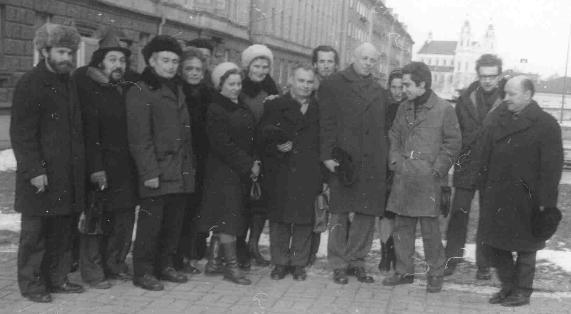 |
|
|
Sakharov with a group of human rights activists. Vilnius, 10 December 1975 |
|
In December 1975, while accepting the Nobel Peace Prize, Andrei Sakharov explained that "the persecution of persons who have defended other victims of unjust treatment… is particularly important." His speech was read aloud in Oslo by his wife. Sakharov himself was standing outside a courthouse in Soviet Vilnius at the time, protesting against the trial of dissident Sergei Kovalev, one of the signatories of the support letter to Leyla Yunus.
Sakharov was not a revolutionary. As he explained in 1975: "In struggling to protect human rights we must, I am convinced, first and foremost act as protectors of the innocent victims of regimes installed in various countries, without demanding the destruction or total condemnation of these regimes. We need reform, not revolution."
But what motivates people to choose a life of dissent under conditions such as those of Brezhnev's Russia, when real change or reform seemed impossible? In an interview, Sergei Kovalev explained the motivation that eventually led to his arrest and years in Soviet jails:
"There were many impulses that pushed me. To put it bluntly, the main impulse was shame, the desire to consider oneself a decent person. Everyone wants to have some basis for self-respect."
What began as a small group of activists in Moscow grew into a continental movement, inspiring dissidents across Europe. The late 1970s saw the emergence of an international human rights movement as a force in world affairs. And Russian dissent inspired the creation of the Sakharov Prize by the European Parliament in 1987.
As the founding executive director of Human Rights Watch, Aryeh Neier, put it this week:
"As in the case of Sakharov himself, the struggle of Leyla Yunus and her husband Arif has been long-lasting, it has been selfless and it has made them the victims of severe reprisals. Also, as in the case of Sakharov, it has helped to bring to light internationally the character of a repressive regime and it has helped to inspire others to emulate their efforts to stand up for human rights. I believe that awarding the prize to Leyla Yunus and her associates would maintain and enhance the distinguished tradition of the Sakharov Prize."
Mobilisation, finally?
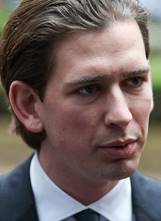 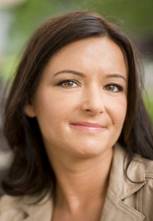 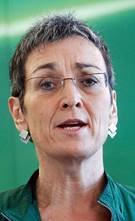 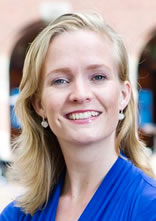 |
|
|
Sebastian Kurz – Tanja Fajon – Ulrike Lunacek – Marietje Schaake |
|
For much of this summer, the Azerbaijani government has got away with an unprecedented wave of repression. In recent weeks, however, a growing unease has turned into increasingly vocal complaints across Europe.
In the European Parliament, 27 members from various political groups supported the nomination of three human rights defenders – including Leyla Yunus – for the Sakharov prize. Tanja Fajon, the vice president of the Social Democratic group, played a key role in gathering signatures for their nomination.
The political group of Greens/European Free Alliance nominated Leyla on behalf of all other human rights defenders in Azerbaijan. Ulrike Lunacek, who is also vice president of the parliament, helped mobilise this support. The co-presidents of the group, Rebecca Harms and Philippe Lamberts, stated:
"Leyla Yunus' tireless human rights work in Azerbaijan over a long period is the epitome of that which the Sakharov Prize aims to recognize. We have nominated Leyla Yunus to draw attention to her outstanding work but also to the deteriorating human rights situation in Azerbaijan… The EU cannot continue to turn a blind eye to the rights situation in Azerbaijan, which is a member of the OSCE, the Council of Europe and the EU's Neighbourhood Policy."
On 11 September 2014 Austrian foreign minister Sebastian Kurz went to Baku and handed the list of political prisoners to the foreign minister of Azerbaijan. This was a significant gesture, one that should be repeated by all EU foreign ministers visiting Azerbaijan. Kurz also met with leading investigative journalist Khadija Ismayilova, who faces possible arrest, but who – like Leyla Yunus – refuses to be intimidated.
On 18 September 2014 the European Parliament passed a resolution on Azerbaijan which called on the Azerbaijani government to "immediately and unconditionally" release all political prisoners.
Finally, this week Anar Mammadli, a leading Azerbaijani human rights activist and defender of the right to free and fair elections, was awarded the prestigious Vaclav Havel Prize. Anar has been in jail since October 2013 and was sentenced to more than five years in prison in 2014. This is a promising, fair, and even courageous decision by the jury members in charge of awarding this prize. It also highlights a dramatic failure by the very institution on whose behalf this prize is awarded, the Council of Europe, which has failed to stand up to the fact of political prisoners in Azerbaijan until now. (See: What the 2014 Havel Prize says about the Council of Europe – and what should happen now.)
Will all of this mark the beginning of a broader mobilisation? Much is at stake – beyond Azerbaijan itself. As Andrei Sakharov wrote to US President Jimmy Carter in 1977:
"It's very important to defend those who suffer because of their nonviolent struggle for an open society, for justice, for other people whose rights are violated. It is our duty and yours to fight for them. I think that a lot depends on this struggle – trust between peoples, confidence in lofty promises, and, in the final analysis, international security."
Many sincere regards,
![]()
Gerald Knaus
The full letter by Ludmila Alekseeva, Sergei Kovalev, Svetlana Gannushkina and Oleg Orlov:
29 September 2014 Moscow
To the European Parliament
Ladies and Gentlemen!
With this letter we would like to express our support for the nomination of Leyla Yunus for the European Parliament's 2014 Sakharov Prize for Freedom of Thought.
As members of the last generation of dissidents in the Soviet Union and followers of Andrei Sakharov, we wish to support our colleagues in Azerbaijan who are unfortunately suffering for the brave stand they are taking to defend human rights in their country. By receiving the award, Leyla would also be a worthy successor to Memorial which was awarded the prize in 2009.
We first worked with Leyla Yunus and her husband Arif in 1989 when she was one of a small number of citizens who began the struggle for the honour and independence of Azerbaijan. They helped to form the Popular Front of Azerbaijan. When the Popular Front acquired a mass membership they took a stand against the nationalist wing which tried to take it over.
In that year, the two of them helped Svetlana Gannushkina to meet Azerbaijani refugees from Armenia and thus helped draw broader attention to the inter-ethnic conflicts of the Soviet Union. Their work moved from the political to the humanitarian sphere.
In the tragic "Black January" of 1990 in Baku when anti-Armenian pogroms broke out in the city and then Soviet troops intervened and caused the deaths of dozens of peaceful citizens, the only source of reliable information on what was happening came from Leyla and Arif Yunus. Their work at that time put them in great danger.
In January 1992 Leyla Yunus was the coordinator on the Azerbaijani side of the first meeting of Armenian and Azerbaijani intelligentsia during the Nagorno-Karabakh conflict. At this intense phase of the Karabakh conflict this meeting had great historical significance. It is enough to say that the best known and most talented writers of the Caucasus, Hrant Matevosian and Akram Ailisli, took part in the meeting.
In recent times Akram Ailisli has been persecuted by the Azerbaijani authorities for publishing his novel Stone Dreams in which he described the tragic events of January 1990 and life in his home town of Ailis, where Armenians and Azerbaijanis lived together peacefully. Leyla and Arif Yunus were amongst the very few who decided to speak out in defense of the writer. This Armenian-Azerbaijani peace-building work is now being described as state treason.
In 1996 Leyla founded the non-governmental organization, the Institute for Peace and Democracy and became its director. The Institute worked to protect human rights, promote democracy, defend the supremacy of the law and the rights of Azerbaijan's minorities.
Ever since then, the Institute has consistently fought for the right of every citizen in Azerbaijan to be respected by the law, to decent treatment and to have a fair and honest trial. Amongst those whom they have supported our activists of the Talysh cultural movement and journalists, including the recently arrested correspondent of Zerkalo newspaper Rauf Mirkadyrov.
The work of Leyla Yunus has been noted all round the world and been marked with international prizes. Leyla has received France's highest honour, the Legion d'Honneur.
Many hoped that the coming to power in 2003 of a new young president in Azerbaijan, Ilham Aliev, would lead to democratization and an easing of the situation for human rights defenders—but these hopes were dashed. For example, The International Working Group for the Location of Missing in Action and the Release of Captives in the Zone of the Karabakh Conflict was forced to halt its work in the region because Azerbaijani soldiers released from Armenian captive faced, instead of sympathy, accusations of treason and were sentenced to long prison terms.
Pressure on human rights defenders did not decrease. Instead the methods used against them became even more unacceptable and the children of activists were targeted.
Salur Alizadeh, the son of the well known political figure and head of the Social Democratic Party Zardusht Alizadeh was convicted in 2009 of a fabricated charge of "possessing and distributing narcotics" – his father had fought energetically against the drugs trade. When Adnan Hajizade, the son of the well-known democratic activist Hikmet Hajizade (who served as Azerbaijan's ambassador in Moscow in 1992-3) was attacked in public in July 2009, the police did not detain the attackers, but arrested Adnan and his friend Emin Milli for alleged hooliganism. Both of them were then sent to jail.
In the same fashion Dinara Yunus, the daughter of Leyla and Arif Yunus, received threats and was forced to seek political asylum in Holland.
A new round of persecution against the Yunuses began this year following the publication of a list of political prisoners. Now their names appear on the very same list.
At the end of April, Leyla and Arif Yunus were not allowed to leave Azerbaijan and were detained in Baku airport. Their passports were confiscated. After this their home and office were searched in the most intrusive and aggressive fashion. However, despite the dangers, they continued to work to defend political prisoners and to expose abuses of human rights and corruption in Azerbaijan.
On July 30, Leyla Yunus was arrested. Arif Yunus was arrested a few days later. They were accused of serious crimes, including state treason, embezzling large sums, illegal commercial activity, refusal to pay taxes and falsifying documents. If convicted, they could both face sentences from 15 years to life imprisonment. All court proceedings are carried out in a highly secretive fashion which is closed even to family members.
We hear continuous and disturbing reports that lawyers are being denied access to them, that Leyla, who suffers from diabetes, has been denied food and medicine. Recently there were reports that Leyla was badly beaten.
Esteemed members of the European Parliament! Leyla Yunus, as well as her husband Arif, has worked for many years to defend human rights, develop democracy and protect ethnic minorities from discrimination. She would be a most worthy recipient of the European Parliament's Sakharov Prize for Freedom of Thought.
Awarding her the prize would also help protect her, Arif and the other 96 recorded political prisoners in Azerbaijan from further persecution and draw attention to the disgraceful human rights situation in a country that is a member of the Council of Europe.
The award could make a positive impact on the overall situation in Azerbaijan before it becomes too late for many people.
Respectfully,
Lyudmila Alekseeva
Svetlana Gannushkina
Sergei Kovalyov
Oleg Orlov

Gerald Knaus
- Standing up for European Values
- Rumeli Observer: What the 2014 Havel Prize says about the Council of Europe – and what should happen now (29 September 2014)
- ESI Azerbaijan website
- ESI briefing: The jails of Azerbaijan – A chronology of recent repression by the chairman of the Council of Europe (May to August 2014)
- ESI newsletter: The LIST and arrests in Baku – Sakharov prize 2014 – Black Sea in Budapest – Capacity building in Kosovo (4 September 2014)
- ESI report: Disgraced – Azerbaijan and the end of election monitoring as we know it (5 November 2013)
- ESI paper: A Portrait of Deception. Monitoring Azerbaijan or why Pedro Agramunt should resign (22 January 2013)
- ESI report: Caviar Diplomacy. How Azerbaijan silenced the Council of Europe (24 May 2012)
